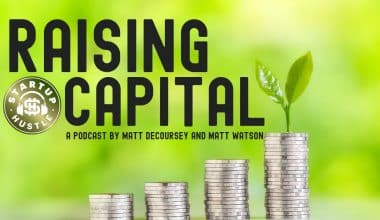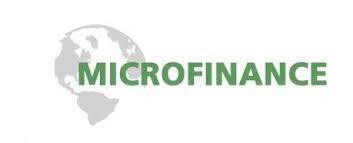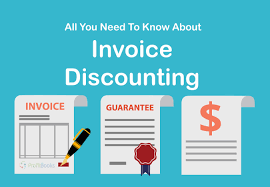Many people see universal basic income (UBI) as a little token that the government gives to its citizens, but there is a lot more to a UBI than the government giving out free money. Thus, in this article, you will learn what a universal basic income is, the pros and cons of a UBI, its application, programs and how it affects the economy.
What is Universal Basic Income?
A universal basic income is a social program, where every citizen receives a monthly allowance, and the state government is responsible for organizing and funding of the program. The purpose of a UBI is to ensure that every citizen of the country can easily provide for their basic needs. For example, cutting down tax payments, home expenses, improving a skill, etc.
The theory of a universal basic income is a centuries-old idea, which was favored by philosophers, civil leaders, social reformers, and individuals across the political spectrum. The execution of this program will help people meet their needs today. Consequently, creating a platform to smooth the life transitions that many of us will face years from now.
Read Also: TREASURY DIRECT ACCOUNT: What Is It & How To Get It
Why Does Universal Basic Income not Work?
A universal basic income is a proposed policy in which every citizen of a country receives a systematic payment from the government. The debate concerning the advantages and disadvantages of a UBI is still ongoing. So far, no country has practiced it yet. This is because there are various countries that already have programs that are similar to a UBI. For example, the Alaska Permanent Fund. Through this program, every citizen of Alaska receives a payment.
Similarly, some countries already have programs that give payments to specific residents. For example, Brazil practices a social welfare program and the main purpose of this program is to assist the poor.
In addition, the issue of population is also a reason why the UBI may not work. The idea of a universal basic income is to make use of government taxes to pay their citizens. In a country like the United States, there are over 300 million Americans. If the government decides to pay each citizen, it will cost more than their taxes, which will be a loss.
The UBI is a good idea because it can assist less privileged citizens or citizens that earn little. However, other individuals feel that it is unfair to receive payments from the government and not have to work.
Will UBI Cause Inflation?
If universal basic income is practiced in the majority of countries, then this would definitely cause inflation. There is something called financial equality, which is similar to economic equality. If everyone has access to wealth, then there will be enough money to be spent. Therefore, leading to an increase in demand. If these demands are not provided, it will cause inflation.
The issue of inflation is one of the main reasons why many economists are in opposition to a UBI. The provision of a UBI will make every citizen access to a certain amount of money, and when there is money to be spent, the increase in demand will be higher.
Furthermore, while studying inflation, each time the demand for a product is too high, there is an increase in price. This simply means that if the demand for these products is too high, the manufacturers will increase their prices. This is done to ensure that the demand is lower. By increasing the price of a product, there is a limitation to the individuals that can afford it. Thus causing a higher cost of living.
Contrarily, some other individuals who are in support of it argued that the UBI won’t cause inflation because the money which will be used is the government taxes. The point being made is that the government taxes are already there, so the money that will be spent is not new funds.
How Will UBI Affect the Economy?
A universal basic income can affect the economy in so many ways. This is because there are several advantages and disadvantages that are attached to it. The intent of starting a UBI program is to eradicate poverty and also assist citizens in paying their bills. The UBI is not a massive payment on which an individual can live, but it is just enough to help with the payment of some bills.
The proposal of a UBI offer is an apparent advantage, which extends beyond the narrative of just giving citizens free money. Some advocates of UBI argued that it will help in cutting down on government expenditure and revolutionizing the way we operate our modern economies. Again, the UBI will be a great advantage, depending on where the money is coming from.
In the United States, half a trillion dollars is spent on welfare in one year. If part of this money can be used for a UBI, plus the government taxes, there won’t be a problem in raising the funds for this program. Many individuals who are against this program often argue that it is an additional cost for the government. The payment of the UBI will come from government taxes, but many economists fear that this may not be enough. This is why some economists suggest that the government should replace some welfare programs with a UBI.
In addition, a UBI can cause an increase or decrease in economic growth. This solely depends on the approach in which the government of a country decides to manage it. What this implies is that if the funds of a UBI are already there, it will definitely be beneficial. However, if it is an additional cost then it will be a disadvantage to the country’s economy.
How Much Will the Universal Basic Income Be?
The amount of universal basic income varies depending on what the government of a country decides. So far, there is no fixed price for what a UBI will be, but there have been different suggestions made concerning its price.
The UBI is a financial support system that is available to give money to everyone in an economy, with very few exceptions. Normally, these program proposals do not include payments for people under the age of 18 or people who are not citizens of the country. Outside of that, everyone receives the payment which is the same amount. Whether you are a student, a working professional, or a multi-millionaire you will receive the same payment as every other citizen. A UBI gives more advantages to students and citizens that earn a regular basic income.
As for how much the UBI payment is, there is no universal price that everyone has agreed to. The amount of this program varies, as different countries offer different proposals. Nonetheless, Andrew Yang has made the best proposal so far. His proposal was a $1000 monthly payment and this is one of the best so far.
Universal Basic Income 2023
The execution of a universal basic income in 2023 can lead to a solid foundation, which will enable people to structure their lives in a way that unleashes their talent. Whether an individual wants to learn, earn, or even start up a business, receiving a basic income will offer a more creative life.
In spite of the various advantages that come with a universal basic income, it also has its disadvantages. There has been a debate among philosophers, economists, and several other individuals about the UBI making citizens lazy. Although in most proposals, the amount of a UBI has not been stated, it is not enough to live on but just enough to cover some basic needs.
For instance, the state of Alaska established a UBI in 1982, which is popularly known as ‘’The Alaska Permanent Fund Dividend’’. Every year, each resident in Alaska is given $1000 to $2000 from the state government, depending on a specific formula. The state government funds the PDF with profits from oil and other natural resources.
Who Pays for Universal Basic Income?
The idea behind a universal basic income was to use government taxes to make payments to their citizens. This simply means that it is the government that pays the UBI. They are the ones in charge of raising the necessary funds for this program and distributing it to the citizens. There is no individual funding for the UBI program, although some countries’ governments may be open to receiving funds from sponsors.
Does Any Country Have a Universal Basic Income?
There have been several countries that have practiced a form of UBI in one way or the other, but none of these countries have tagged it to be a universal basic income. In some countries, there are programs available, such as welfare programs and some other programs that include giving money to the poor, less privileged, disabled individuals, etc. These programs are currently in practice, but many countries call it a basic income.
Although no country has successfully practiced a UBI, there are some countries that have made an attempt to practice it. Some of these countries include;
- United States
- Norway
- Brazil
- Finland
Does UBI Take Money From the Poor?
The popular narrative about the UBI taking money from the poor is not quite true. The introduction of a universal basic income came with the aim of eradicating poverty and helping the citizens of a country to provide for their basic needs. So why will the UBI take money from the poor?
Many individuals often argue that the generation of the UBI funds indirectly comes from citizens. This is simply because the funds for the program are raised through government taxes and these taxes are provided by the citizens. Nevertheless, this is still not enough reason to say that UBI takes money from the poor.
Universal Basic Income Programs
Many countries practice basic income programs and also states. Here is a list of some states that offer a basic income to their residents. They include:
- Indiana
- Florida
- New Jersey
- New York
- South Carolina
- North Carolina
- Louisiana
- Virginia
What Are Universal Basic Income Pros and Cons?
The idea of a UBI is to create a sustainable and equitable future for every citizen. This program has a lot of advantages attached to it and also disadvantages. Below are some of the pros and cons of UBI. They include:
Pros
- A program like the UBI can lead to the reduction of the poverty rate.
- Reduction of inequality and insecurity.
- A UBI will create leeway for employees who have automation as a threat to their jobs.
- There can be an increase in social security by reducing people’s dependence on the labor market.
- Bureaucracy reduction.
Cons
- It can cause inflation.
- Negative impact on the labor market.
- Progressive taxation.
- Decrease in productivity.
Universal Basic Income Application
The application of a universal basic income varies depending on the country or state that you are currently living in. There are several basic income programs that some countries practice, but first, you have to be eligible for the payment. In some countries, in order for you to qualify for their basic payment, you have to earn at least less than 30% of the area median income. In other countries, everyone will receive the payment as long as you are up to 18.
NOTE: The information stated above varies, depending on your current location or the state/country you reside in.
Conclusion
There are many advantages of a universal basic income, such as the eradication of poverty, bureaucracy reduction, inequality, and insecurity reduction, etc. All these will lead to an increase in a country’s economy. However, there are also some downsides that come with this program which could also lead to a decrease in economic growth. What really matters is the approach in which the government of a country decides to adopt while carrying out the program.






